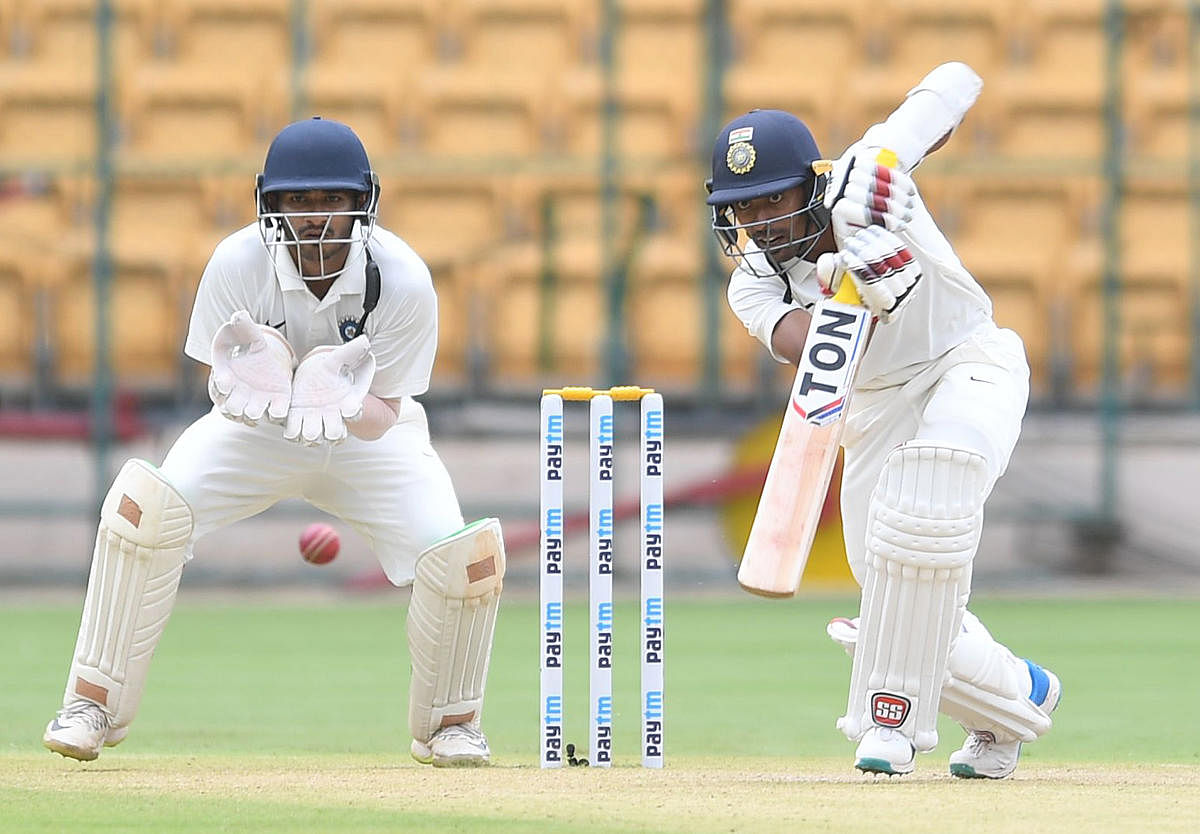
There was certain charm about the old format of Duleep Trophy. Karnataka and Tamil Nadu players -- arch-rivals while playing against each other -- working in tandem for the South Zone in the once-prestigious tournament had a great appeal among fans.
Four seasons ago, however, the BCCI Technical Committee, changed the format of the tournament. While earlier five zones -- North, South, East, West and Central – battled it out on a knockout basis, in the new format, introduced in 2016, top domestic players of the country were divided into three teams – India Red, Blue and Green – with the top two teams progressing to the final after the round-robin format.
The consequence of the changed format was witnessed on Saturday when the lop-sided Duleep Trophy final between India Red and India Green ended right after tea on the fourth day here on Saturday. The Chinnaswamy pitch had begun to show cracks but there was no reason for the batting side to panic. However, India Green’s implosion against an attack that was far from threatening was a perhaps case of lack of team spirit and thus raises questions on the tournament’s format.
Lack of preparation as a team results in poor bonding between the players and this in turn is bound to affect the team’s on-field performance. “We all meet just one day before the tournament so we don’t get enough time to gel,” India Green captain Faiz Fazal told reporters after his side’s innings and 38-run defeat.
India Red’s off-spinner Akshay Wakhare echoed his opponent’s thoughts. “Playing matches straightway with players you aren’t very familiar with is difficult. There are many players with whom we wouldn’t have interacted before. So the idea of playing as a team goes missing. Even the lack of fight today from their (India Green) batsmen could be because of this. They are a much better batting side and they should have scored more,” he said.
Wakhare felt the earlier format produced more competitive matches. “I definitely feel the previous format, where we were divided into zones, was better. You are more attached to your team than what you see in the current format. Also, in zones, there are senior players to guide you during different match situations but here we have to do everything on our own,” he offered.
The first-class tournament is a chance for India hopefuls to impress the national selectors. Inevitably, focusing on individual performances becomes the priority. “Before the tournament, I had a chat with my team and told the players to focus on winning the title than on just doing well as individuals. Only thinking about your own performance is being selfish,” Fazal said.
With no rapport with his team-mates, it becomes difficult for captains to execute their roles. “When you lead your State, there is sense of control over your team. If I instruct my State team-mate, he will not refuse to do it. But here, I can’t force things on anyone. Players say they will try,” reasoned Faiz, who leads Ranji Trophy champions Vidarbha.
The title clash witnessed only a handful of spectators. Playing in front of encouraging crowd will spur the players to give their best. The previous format gave a chance for fans of different zones to back their sides. It remains to be seen if the BCCI considers the shortcomings of the current format before the next season.